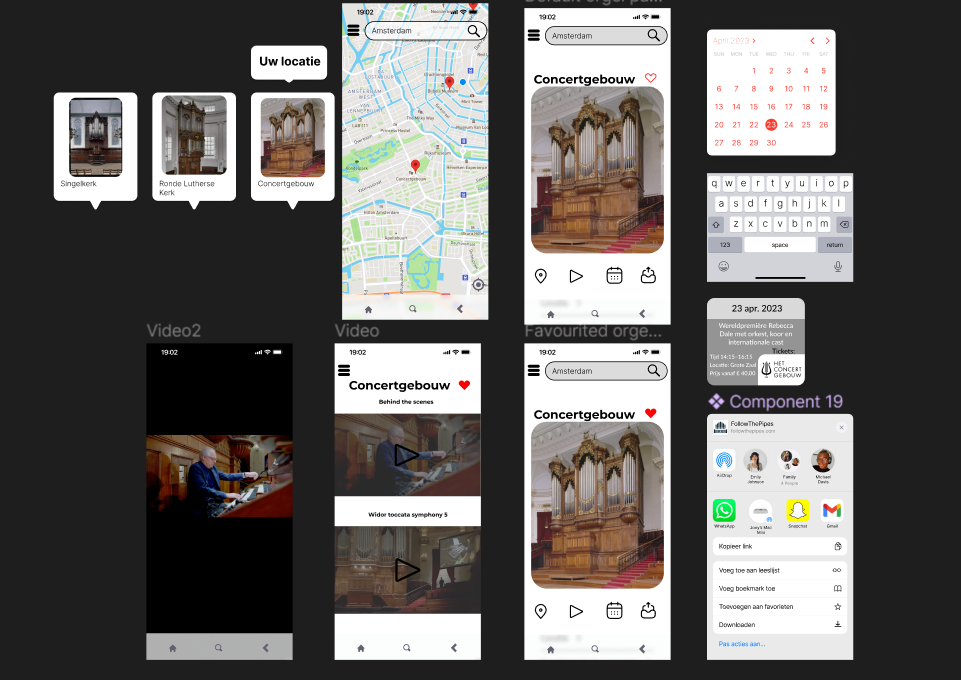Utrecht University computer science students create ORGANS application design ‘FollowThePipes’
During the spring semester, first-year information and computer science students created a user interface to make data on pipe organs accessible to a wider audience. Polifonia is excited to report on this fruitful collaboration between our stakeholder Utrecht University (Frans Wiering) and the ORGANS pilot.

During the spring semester, first-year information and computer science students created a user interface to make data on pipe organs accessible to a wider audience. Polifonia is excited to report on this fruitful collaboration between our stakeholder Utrecht University (Frans Wiering) and the ORGANS pilot.

FollowThePipes
For the course Designing Interactive Systems, information and computer science students from Utrecht University worked on the assignment ‘FollowThePipes’, based on pipe organ data from the ORGANS pilot lead by Peter van Kranenburg (Meertens Instituut). The goal was to make pipe organ data easily accessible and searchable for a large user group. This will be done through a mobile app, which should cater to the explorative needs of the user. In addition to Peter van Kranenburg, the students were supervised by Max van Tiel (Netherlands Institute for Sound & Vision), Frans Wiering (Utrecht University) and Yoran den Heijer (Universiteit Utrecht).
Prototypes
The assignment consisted of two phases, a lo-fi and a hi-fi development phase, in which students must develop according to a set of requirements, as if they were working for a real client. Four teams had to make sure that the full potential of the linked data was used, presenting both historical and technical information of the Dutch pipe organs in the most efficient way. The app includes a homepage, search page/function with filter function, details page and a map to navigate through organs in the Netherlands, and optionally extra features such as ‘organ of the day’ or an ingest of organ concert data. Since the app should be primarily exploratory in nature, several ways to search for organs, through the search function, click-through options and the map needed to be included. The students also had to optimize the user experience by providing an attractive design, thinking about colors, font types and symbols.



Inspiration
This assignment, carried out by students from Utrecht University, helped Polifonia, and the ORGANS pilot in particular, take a step further in thinking about the data to be presented. Especially in relation to interface design, user engagement and user experience. We thank the students for these insights and their hard work on the apps!










